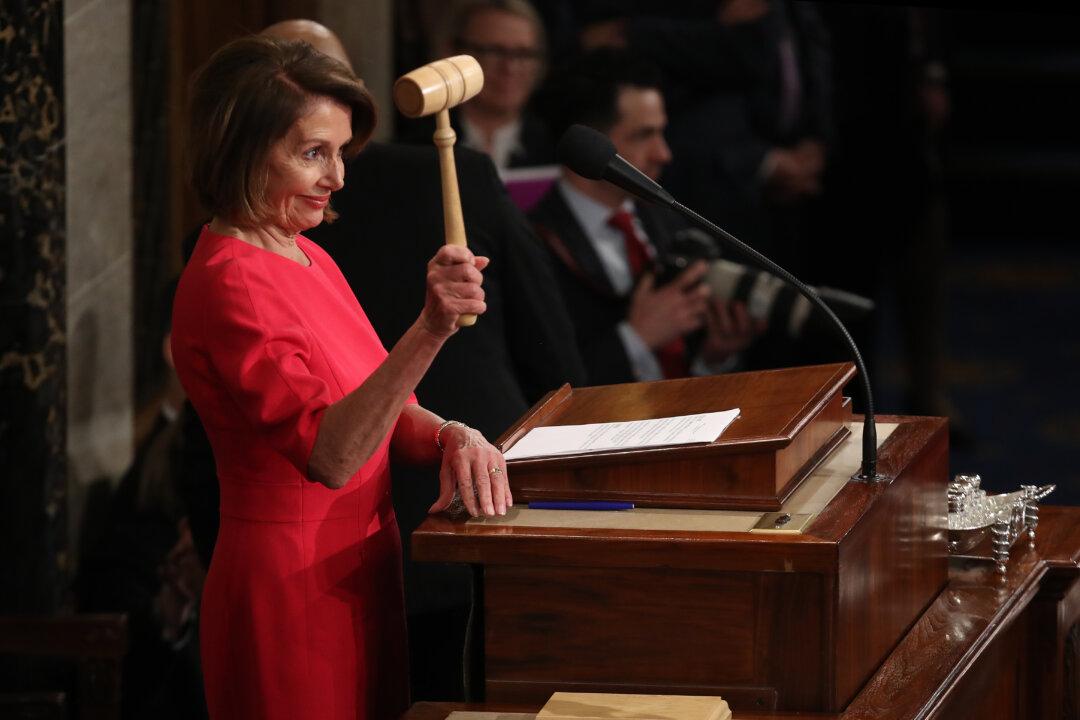After a Tuesday meeting of the Democratic caucus, Speaker of the House Nancy Pelosi (D-Calif.) spent much of the press conference discussing the debt ceiling. As Republicans continue to block Democratic efforts to raise the debt limit, Pelosi indicated that members of her caucus are already looking for ways to avoid the challenge in the future—specifically, by giving the president-appointed secretary of the Treasury the power to raise the debt limit on their own.
The caucus meeting came after the Senate rejected debate on the Democrat-authored continuing resolution to fund the government Monday evening in a roughly party-line vote. The vote was the culmination of months of posturing by Senate Republicans, who have insisted since August that they would not vote to increase the debt limit.





